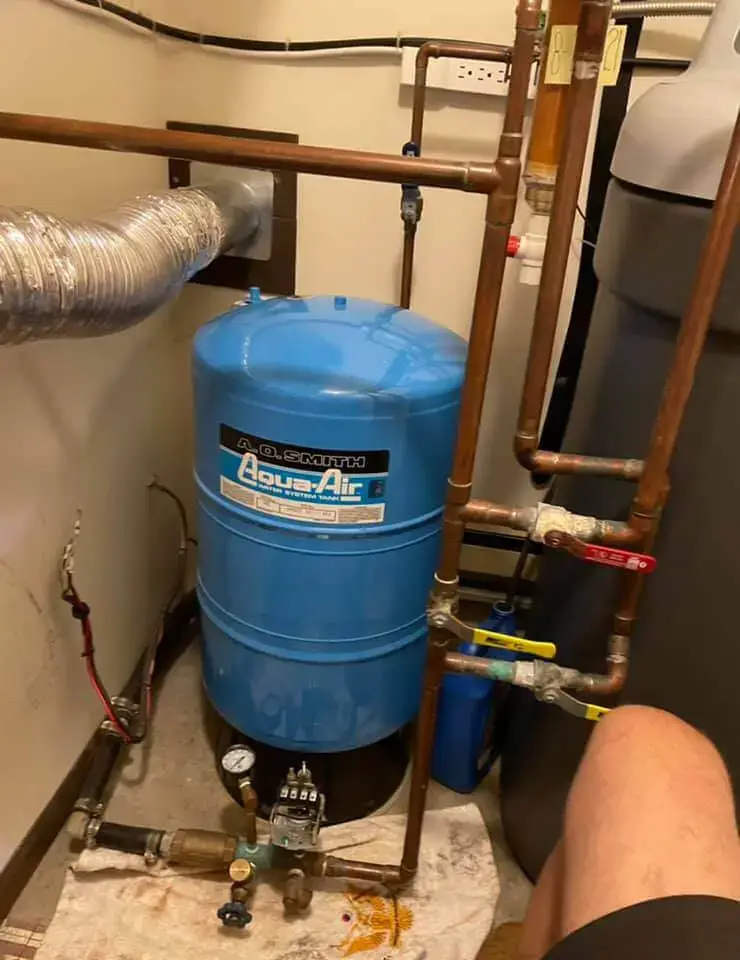Recognizing the Secret Parts of Effective Water Filtering Systems

Relevance of Water Filtering Systems
Water filtering systems play a crucial function in making sure accessibility to clean and safe alcohol consumption water by efficiently getting rid of impurities and contaminations. These systems are necessary in addressing the expanding problems over water top quality and the potential health risks related to taking in polluted water. By using various filtering systems such as reverse osmosis, turned on carbon, and UV sterilization, water purification systems can successfully remove unsafe substances like bacteria, viruses, hefty metals, and chemicals from the supply of water.
Moreover, water filtering systems aid to enhance the taste and odor of water by eliminating chlorine, debris, and other toxins that can affect its top quality. Water Filtration Systems. This improvement in water top quality not just makes it a lot more tasty yet also motivates people to consume an adequate quantity of water daily, promoting far better hydration and total health and wellness
Kinds of Filtering Elements

Physical filters are made to physically strain out contaminations from the water. These filters can be constructed from products like ceramic, carbon, or also sand, and they function by trapping fragments bigger than the filter's pores as water passes with.
Chemical filters utilize various chemical procedures to get rid of contaminants from the water. Instances include activated carbon filters, which adsorb pollutants, and turn around osmosis membranes, which use pressure to different pollutants from the water.
Organic filters utilize living microorganisms like algae or bacteria to break down raw material and contaminants in the water. These filters are often made use of in wastewater therapy plants or all-natural water purification systems.
Understanding the different kinds of filtration elements is essential for selecting the most appropriate water filtration system for certain filtration demands.
Feature of Debris Filters
Debris filters play a vital function in water filtering systems by successfully catching strong particles put on hold in the water. These filters are commonly the very first line of protection in a filtering system, getting rid of larger click fragments such as sand, silt, dust, and corrosion prior to the water relocates through finer filtering stages. By capturing these debris, the filters avoid them from reaching downstream components, thus expanding the lifespan and effectiveness of the whole system.
Overlooking this upkeep can lead to blocking, decreased water circulation, and jeopardized filtering performance. In general, sediment filters are vital components that add dramatically to the efficiency of water filtration systems.
Function of Triggered Carbon Filters
Playing an essential duty in water filtering systems, turned on carbon filters are critical in removing pollutants and pollutants from the water supply. As water passes with the filter, the turned on carbon draws in and holds onto the contaminations, making certain that the water that comes out on the various other side is cleaner and safer for intake.
Triggered carbon filters are highly effective at boosting the taste description and smell of water by decreasing chemicals that can affect its high quality. They are likewise capable of getting rid of certain hefty metals like lead and mercury. Additionally, these filters can assist protect against the build-up of germs and algae in water, more enhancing its total high quality. As a result of their adaptability and dependability, turned on carbon filters are a key element in guaranteeing that water is purified to the highest possible standards before getting to consumers.
Understanding Reverse Osmosis Equipments
Reverse osmosis systems are sophisticated water filtering systems that utilize an innovative process to get rid of contaminants and contaminations from alcohol consumption water. These systems function by using stress to the water, compeling it via a semi-permeable membrane.
One secret benefit of reverse osmosis systems is their capability to get rid of a vast array of impurities, consisting of heavy metals, liquified viruses, solids, and microorganisms. This makes them extremely effective in improving the overall quality and safety of drinking water. In addition, reverse osmosis systems are reasonably low-maintenance and can be set up under the sink or in a main filtration system, supplying hassle-free accessibility to tidy water throughout the household. Overall, recognizing how reverse osmosis systems work can aid people make educated decisions about their water filtration demands.
Conclusion
To conclude, efficient water purification systems are crucial for making certain clean and safe alcohol consumption water. The vital components of these systems include sediment filters, turned on carbon filters, and reverse osmosis systems. By recognizing the function and duty of each part, people can make informed decisions when choosing a water purification system. It is vital to focus on the quality of water in order to promote general wellness and health.
Water purification systems play an essential role in making sure access to risk-free and clean alcohol consumption water by efficiently removing impurities and Water Filtration Systems impurities. By using numerous filtering mechanisms such as reverse osmosis, activated carbon, and UV sterilization, water filtration systems can efficiently remove hazardous substances like bacteria, infections, hefty steels, and chemicals from the water supply.
Debris filters play an essential role in water purification systems by successfully recording strong bits suspended in the water (Water Filtration Systems).Playing a crucial duty in water filtering systems, turned on carbon filters are important in removing impurities and pollutants from the water supply.Reverse osmosis systems are innovative water filtering systems that employ an innovative process to get rid of contaminants and contaminations from drinking water